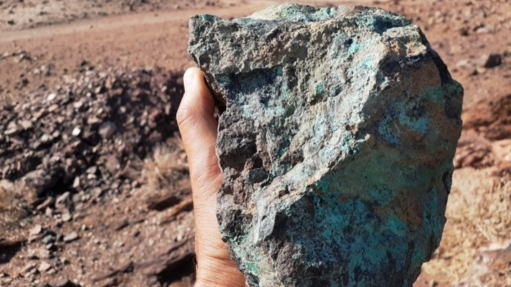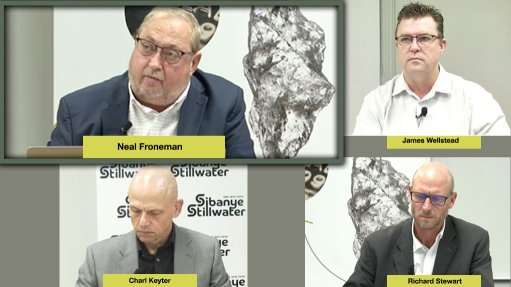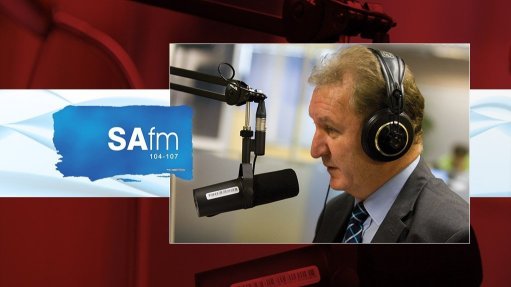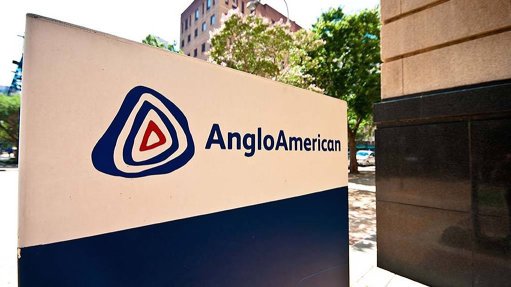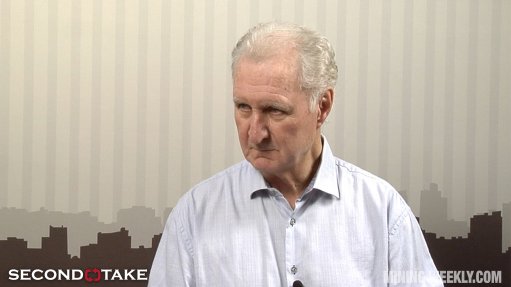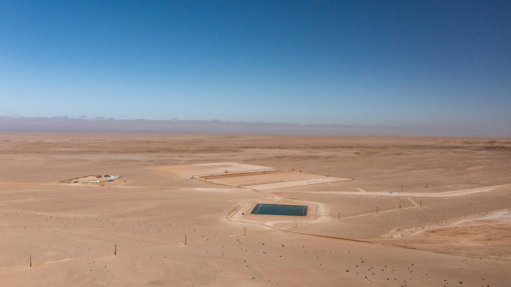Richards Bay Minerals in court bid against trusts, says most of R530m didn't reach communities
Richards Bay Minerals has approached the high court to impose tighter governance controls over local community development trusts to ensure that hundreds of millions in financial benefits will reach the broader community, breaking a "pattern of abuse" of the funds and addressing a "gross lack of governance".
Richards Bay Minerals (RBM) on Thursday afternoon lodged an application with the Pietermaritzburg High Court seeking the trust deeds of four community trusts to be amended to enforce transparency and good governance, ensuring funds are used for the benefit of the mine-affected communities.
Richards' Bay Minerals, owned by leading global mining group Rio Tinto, mines the vast and rich mineral sands resources in northern KwaZulu-Natal, a lucrative business which has caused the company to be the single largest taxpayer in the province. It has also resulted in some R530-million being paid into the four funds since 2009, the bulk of which, RBM says, has not reached the grassroots community as intended.
In fact, from what little information has been furnished by these trusts, RBM estimates only 16% of the funds have been funnelled into projects to uplift and improve the lives of the community.
The struggle for control of the community development trust funds have been at the centre of tensions at RBM, which have at times boiled over into anarchy – most notably in June last year when the company suspended operations for two months after a senior manager was murdered amid escalating violence around the mine.
The trusts were established as part of a black economic empowerment transaction RBM concluded in 2009. Out of the 26% empowerment shareholding, 24% was awarded to Blue Horizon Investments, 45% of which is owned by the mine's four host communities in equal shares through the community development trusts.
The shareholding in RBM entitles the trusts to dividends, as well as so-called "Corporate Social Investment" payments. The trust funds are intended for community upliftment initiatives.
However, the existing trust deeds have also entitled the traditional leaders, or amakhosi, and their direct family members to 10% of the "trickle" dividends paid into these trusts.
The governance of the trusts has, however, been of concern to RBM since quite early on, and in 2015 the company began to withhold dividend payments from three of the four trusts until ongoing governance concerns were addressed.
Post-2018, certain conditions were met for RBM to release funds to two more trusts.
Amid the violence and the suspension of operations in June last year, the DMRE issued the company with a notice in terms of section 93 of the Mineral and Petroleum Resources Development Act, ordering that all withheld monies be released to the trusts, with engagements to reform the trust deeds to start thereafter.
RBM complied and signed a memorandum of understanding (MOU) with the trustees in August, in which the parties agreed to negotiate and implement amendments to the trust deed to enhance governance and control of the trusts, including an amendment to remove the amakhosi and their immediate families as beneficiaries.
Despite engagements, there has been little progress in fulfilling this commitment and in July this year the trusts formally communicated their intention to withdraw from engagements to reform the deeds.
While the trustees did provide a handful of quarterly reports, as agreed in the MOU, these were wholly inadequate.
What little information was provided, however, "painted a more ominous picture than anticipated" wherein excessive amounts were spent on unspecified expenses. This was in addition to investments in third parties, loans to third parties and distributions of trust assets being made to non-beneficiaries – all in contravention of the provision of the trust deeds.
Given that direct negotiations and engagements through various government structures have failed – and that trustees have "essentially ignored" RBM's calls for improved governance – the company said it has no choice but to approach the courts for relief.
In the court application – citing the trustees of the Mkhwanazi, Dube, Mbonambi and Sokhulu trusts and their associated public benefit trusts as respondents – RBM has asked the court for the variation of a set of trust instruments in terms of section 13 of the Trust Property Control Act.
There is now "more than sufficient evidence" that trustees are failing to utilise the trust property for the empowerment of the host communities, RBM argued.
The requested variation is to ensure those trustees perform their duties, comply with the law, and utilise the monies received to benefit their ultimate beneficiaries.
Among RBM's proposed reforms is that the amakhosi and immediate family be removed as beneficiaries and that the trust boards comprise a majority of independent trustees appointed by traditional councils and by the company – with controls in place to ensure independence and transparency.
The company has said that simply removing the trustees is not a solution because the amakhosi are responsible for appointing the trustees, and so the independence of the future trustees cannot be guaranteed.
The company has also proposed it be awarded step-in rights to take remedial action where the trustees fail to adhere to the trust objectives.
RBM is also seeking rights to audit the trust financials and other records, should the trusts fail to produce audit financials and prepare quarterly reports.
The court bid comes just as the BEE transaction is set to mature on 19 November and current restrictions on how the funds are used will expire as a result. This means that a requirement that most funds be disbursed to the public benefit trusts will no longer apply.
In an interview with News24, RBM managing director Werner Duvenhage said the bid to reform the trust deeds will not give the company additional power over them and has "nothing to do about disempowering the amakhosi" either. Duvenhage was at pains to say the company's court bid was not intended to go against traditional authority.
"We are actually very much respecting it," he said. "It's the people's land that we are on, and they should get the benefits."
Duvenhage said RBM has been working to find alternative solutions and, despite the legal action, has not closed the door on a bilateral outcome.
"As long as there's no final court decision, we would be willing to engage … [but] we will only withdraw the case if we have a new negotiated trust deed …because we have to do better in delivering to the final beneficiaries," he said.
Duvenhage said RBM had performed significant risk assessments regarding possible discord that the legal action might spark around its operations and host communities. "We have identified individuals and [other risks], and we have resources for that," he said. "So we can never say 100% for sure, but I think we are as well prepared as we can be."
Ultimately, Duvenhage said, RBM believed that resolving the governance and transparency issues with the trusts would create a much more stable environment in which the company operates, with greater benefits for the community over the long-term.
Comments
Press Office
Announcements
What's On
Subscribe to improve your user experience...
Option 1 (equivalent of R125 a month):
Receive a weekly copy of Creamer Media's Engineering News & Mining Weekly magazine
(print copy for those in South Africa and e-magazine for those outside of South Africa)
Receive daily email newsletters
Access to full search results
Access archive of magazine back copies
Access to Projects in Progress
Access to ONE Research Report of your choice in PDF format
Option 2 (equivalent of R375 a month):
All benefits from Option 1
PLUS
Access to Creamer Media's Research Channel Africa for ALL Research Reports, in PDF format, on various industrial and mining sectors
including Electricity; Water; Energy Transition; Hydrogen; Roads, Rail and Ports; Coal; Gold; Platinum; Battery Metals; etc.
Already a subscriber?
Forgotten your password?
Receive weekly copy of Creamer Media's Engineering News & Mining Weekly magazine (print copy for those in South Africa and e-magazine for those outside of South Africa)
➕
Recieve daily email newsletters
➕
Access to full search results
➕
Access archive of magazine back copies
➕
Access to Projects in Progress
➕
Access to ONE Research Report of your choice in PDF format
RESEARCH CHANNEL AFRICA
R4500 (equivalent of R375 a month)
SUBSCRIBEAll benefits from Option 1
➕
Access to Creamer Media's Research Channel Africa for ALL Research Reports on various industrial and mining sectors, in PDF format, including on:
Electricity
➕
Water
➕
Energy Transition
➕
Hydrogen
➕
Roads, Rail and Ports
➕
Coal
➕
Gold
➕
Platinum
➕
Battery Metals
➕
etc.
Receive all benefits from Option 1 or Option 2 delivered to numerous people at your company
➕
Multiple User names and Passwords for simultaneous log-ins
➕
Intranet integration access to all in your organisation







